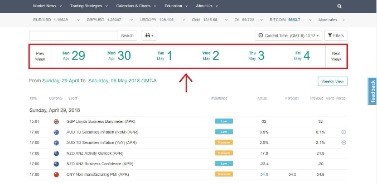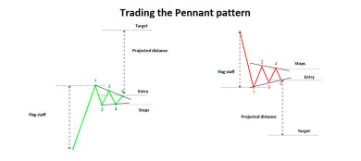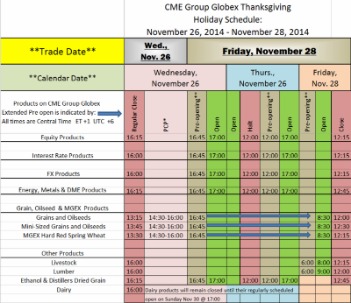Content

Some benchmark proprietary indexes to avoid having to pay a licensing fee to third-party companies. This is the case of the Fidelity ZERO Total Market Index Fund (FZROX), which tracks the Fidelity U.S. Total Investable Market Index and charges no annual expense ratio. With the same color-coded funds, the one with the higher Average 3-year rolling returns (over 5 to 10 years), the number
that appears in the Performance tag, ranks higher.
Your company administrator will ultimately decide which mutual funds you can choose from. But while many mutual funds are indeed actively managed, chances are nowadays that index mutual funds will be well-represented. We’ll cover a few representative standouts later, but keep in mind you may not be able to find the exact same investment based on the short list of options in your employer-based plan. Be flexible, and where we can, we’ll list a few popular alternatives. The first major benefit is that a simple and passive approach saves you on fees. There is no overpriced fund manager making trades based on gut instinct—just a fixed list of holdings like the 30 components of the Dow or the 500 companies in the S&P 500.
While DON is considered a mid-cap fund, it could easily be regarded as a SMID (small and mid-cap stocks) fund because mid caps account for 64% of total holdings, while small caps make up the rest. In addition, approximately 45% of the WisdomTree U.S. Midcap Dividend Fund’s holdings are value stocks, 9% are growth stocks, and 46% are a blend. “They can include hundreds or even thousands of stocks or bonds across a range of sectors and sizes,” Hicks writes. “Diversification reduces the risk of any one stock derailing your portfolio’s performance.” Index funds offer an accessible and cost-effective way for investors to build a diversified investment portfolio with confidence.
Higher broker fees when investing in two funds
Index funds can be a smart way to build a diverse stock portfolio tailored to your investment goals whether your priorities are income, growth, stability, or a combination of the three. An index fund usually owns at least dozens of securities and may own potentially hundreds of them, meaning that it’s highly diversified. In the case of a stock index fund, for example, every stock would have to go to zero for the index fund, and thus the investor, to lose everything. So while it’s theoretically possible to lose everything, it doesn’t happen for standard funds. This ETF started trading in 1999, and it’s managed by Invesco, a fund giant. This fund is the top-performing large-cap growth fund in terms of total return over the 15 years to Sept. 2022, according to Lipper.
The five-year performance of the Fidelity Index Europe ex UK index fund based on a lump sum investment of £10,000 in December 2017 is 29%. The five-year performance of this index fund based on a lump sum investment of £10,000 in December 2017 is 58%. The five-year performance of this index fund based on a lump sum investment of £10,000 in December 2017 is 52%. The five-year performance of this index fund based on a lump sum investment of £10,000 in December 2017 is 22%. The five-year performance of this index fund based on a lump sum investment of £10,000 in December 2017 is 24%.
Who Should Invest in Index Funds?
QQQM has an expense ratio of 0.15%, meaning for every $1,000 invested you’d pay a $1.50 fee annually. Our partners cannot pay us to guarantee favorable reviews of their products or services. We believe everyone should be able to make financial decisions with confidence. Index funds track a particular index and can be a good way to invest. After you’ve found a fund you like, you can look at other factors that may make it a good fit for your portfolio.

It is based on a market-cap-weighted index which provides exposure to large-, mid-, and small-cap companies traded on the Istanbul Stock Exchange (ISE), giving broad market exposure. Overall, the combination of broad market exposure, lower costs, convenience, and historically strong performance make index funds a popular and effective investment option for many investors. Many financial experts say that index funds can be good for long-term investments.
Fidelity ZERO Large Cap Index Fund
VEMAX is a Vanguard Admiral Shares fund, which requires a minimum investment of $3,000. However, the fund is also available in ETF format, with no minimum required investment. The Nasdaq-100 ETF has outperformed all the other ETFs, with the S&P 500 second. However, as mentioned above, companies in the United States, and in particular tech companies, have performed extremely well over the last 30 years.

In this regard, time is your best friend, because it allows you to compound your money, letting your money make money. That said, narrowly diversified index funds (such as funds focused on one industry) may do poorly for years. https://g-markets.net/helpful-articles/how-to-spot-fake-double-tops/ While the S&P 500 and Nasdaq are two of the most popular stock market indexes, there are many others that track different parts of the investment universe. These three index funds are also worth considering for your portfolio.
For instance, diversifying your investment portfolio could help lower your risk level. Similarly, if you stay invested for the long term, the risk of losing money in index funds is almost zero. The major difference between actively and passively managed funds is that the former requires constant monitoring of the fund’s performance.
Is an index mutual fund different from an index ETF?
Volatility will be a lot higher than US, UK and Europe index funds, but returns can be much greater in good years. The fund’s investment objective is to achieve long-term capital growth by closely matching the performance of the MSCI World Index. The Vanguard Total International Stock Index Fund seeks to track the returns measured by the FTSE Global All Cap ex U.S. Like other international equity funds, it can be more volatile than a domestic index fund.
- That being said, to mitigate risks and diversify your portfolio, you could park some money in FDs to enjoy assured returns.
- Those are funds composed of stocks in companies that have been largely overlooked by the general market, despite being fundamentally strong.
- In actively managed funds, the fund manager will actively buy and sell securities within the fund in an attempt to outperform the market.
This fund is a good choice for an investor who wants broad representation across virtually global stock markets. This fund is offered in several mutual fund share classes by Vanguard that vary in terms of the minimum initial investment and the expense ratio. The fund is also offered as an ETF – as are many of Vanguard’s index mutual funds.
Is an index fund better than an actively managed fund?
Uncover top mutual fund and ETF picks from a source that investors trust. Morningstar Investor’s mutual fund and ETF ratings, analysis, and insights are all backed by our transparent, meticulous methodology. Many of the offers appearing on this site are from advertisers from which this website receives compensation for being listed here. This compensation may impact how and where products appear on this site (including, for example, the order in which they appear). These offers do not represent all available deposit, investment, loan or credit products.
- It is important to note that index funds are usually more affordable than other investment options.
- Experts recommend adding money to the market regularly to take advantage of dollar-cost averaging and lower their risk.
- They offer the ability to diversify your investments by providing exposure to a wide range of assets at a low cost.
- The Fidelity International Index Fund (FSPSX, $44.16) is the only non-U.S.
- With hundreds of billions in the fund, it’s among the most popular ETFs.
- The top holdings in this fund are some names you might recognise, including Taiwan Semiconductor, Tencent, Alibaba, JD, Infosys, Vale and Reliance Industries.
The Fidelity International Index Fund tracks the performance of the MSCI Europe, Australasia, Far East Index (EAFE). The MSCI EAFE is a broad index that represents the performance of foreign developed-market stocks. This fund offers a diversified international portfolio at a very low cost. Because the fund avoids emerging market equities, its returns are subject to lower volatility.
Motilal Oswal Nifty Midcap 150 Index Fund
An ETF (Exchange Traded Fund) is a type of investment fund that is traded on a stock exchange like a stock. It is designed to track the performance of a specific index, such as the S&P 500, or a group of assets, such as stocks or bonds. ETFs are created by financial institutions like BlackRock or Vanguard, and can be bought and sold like individual stocks.
